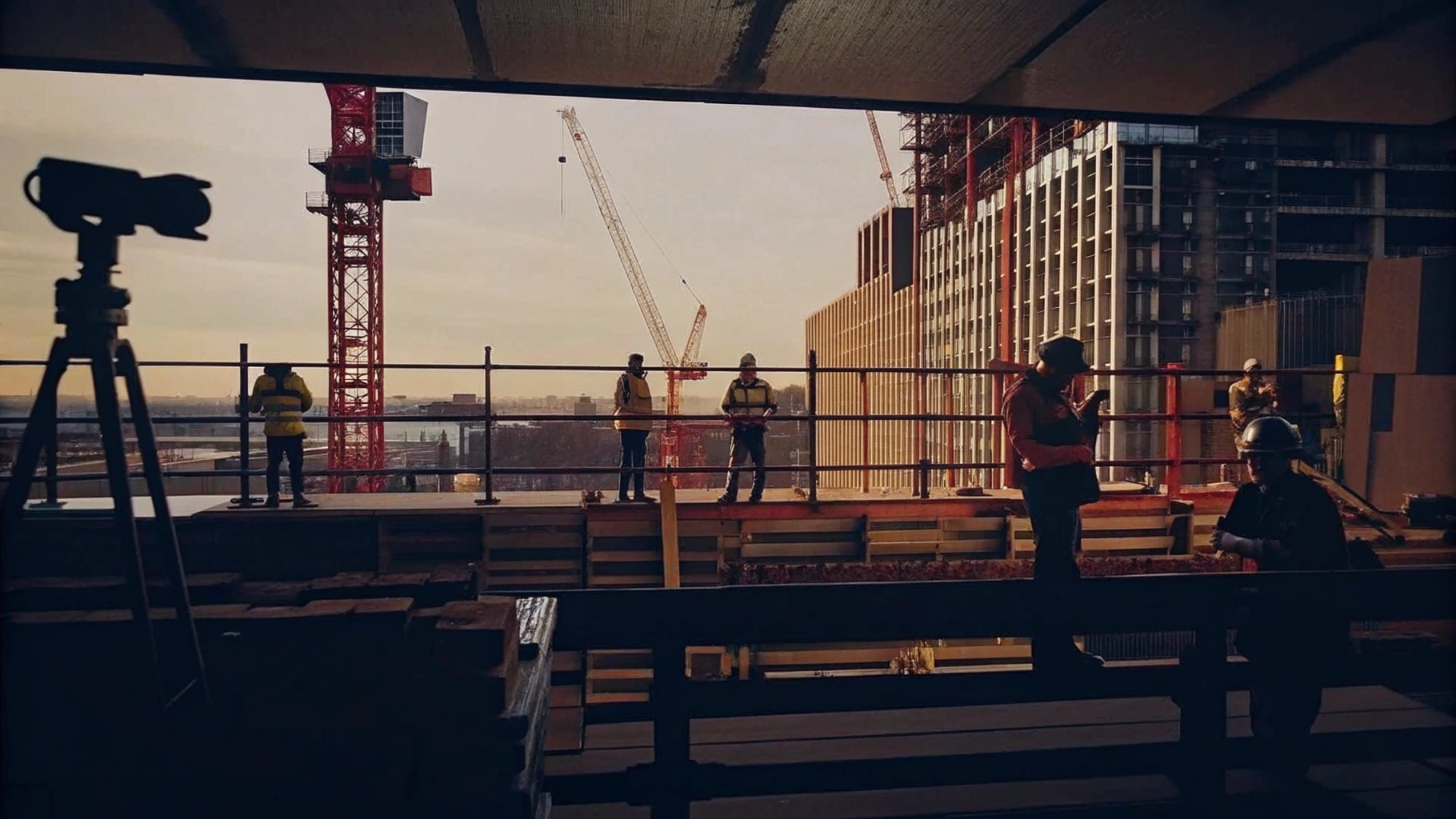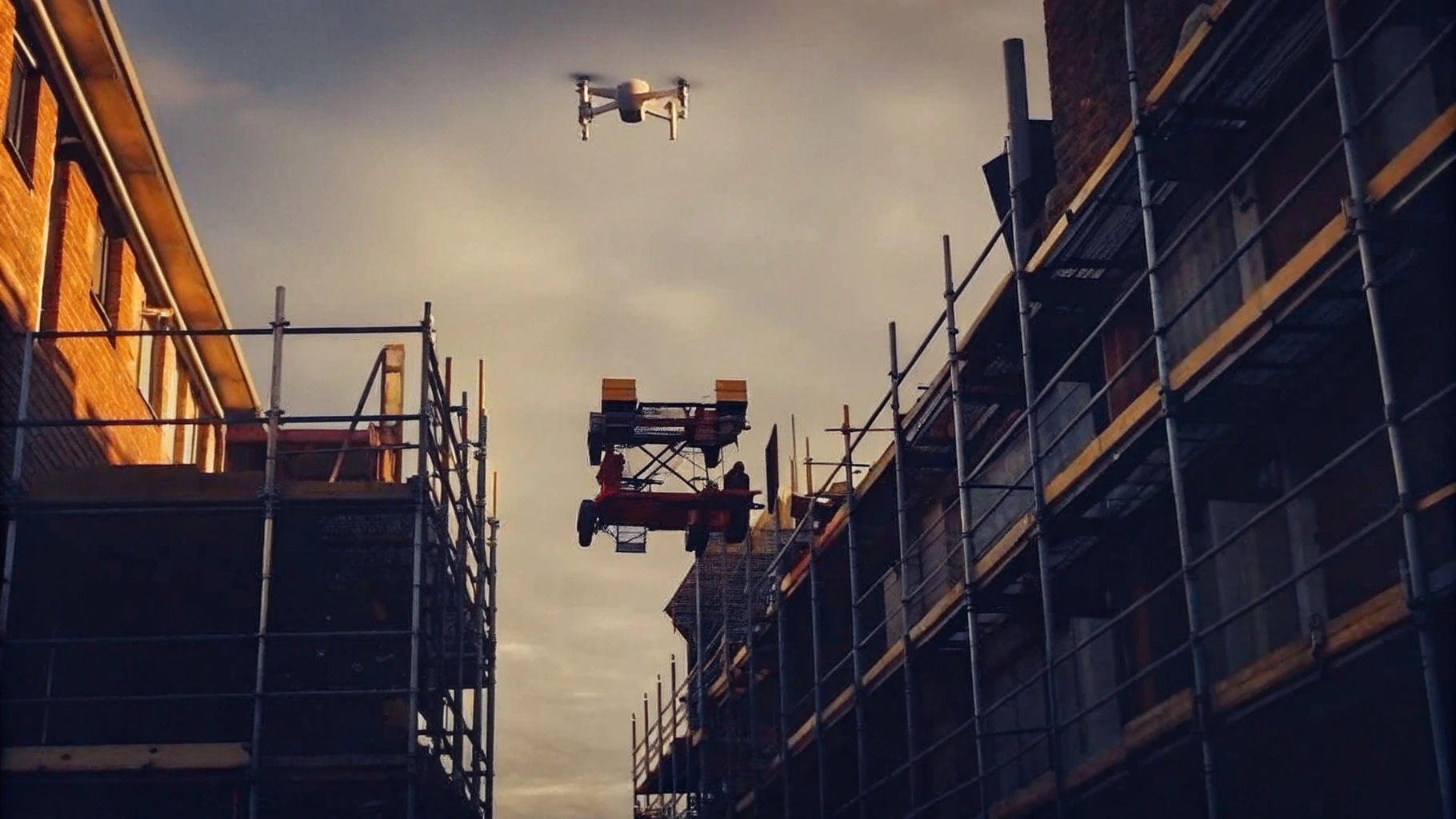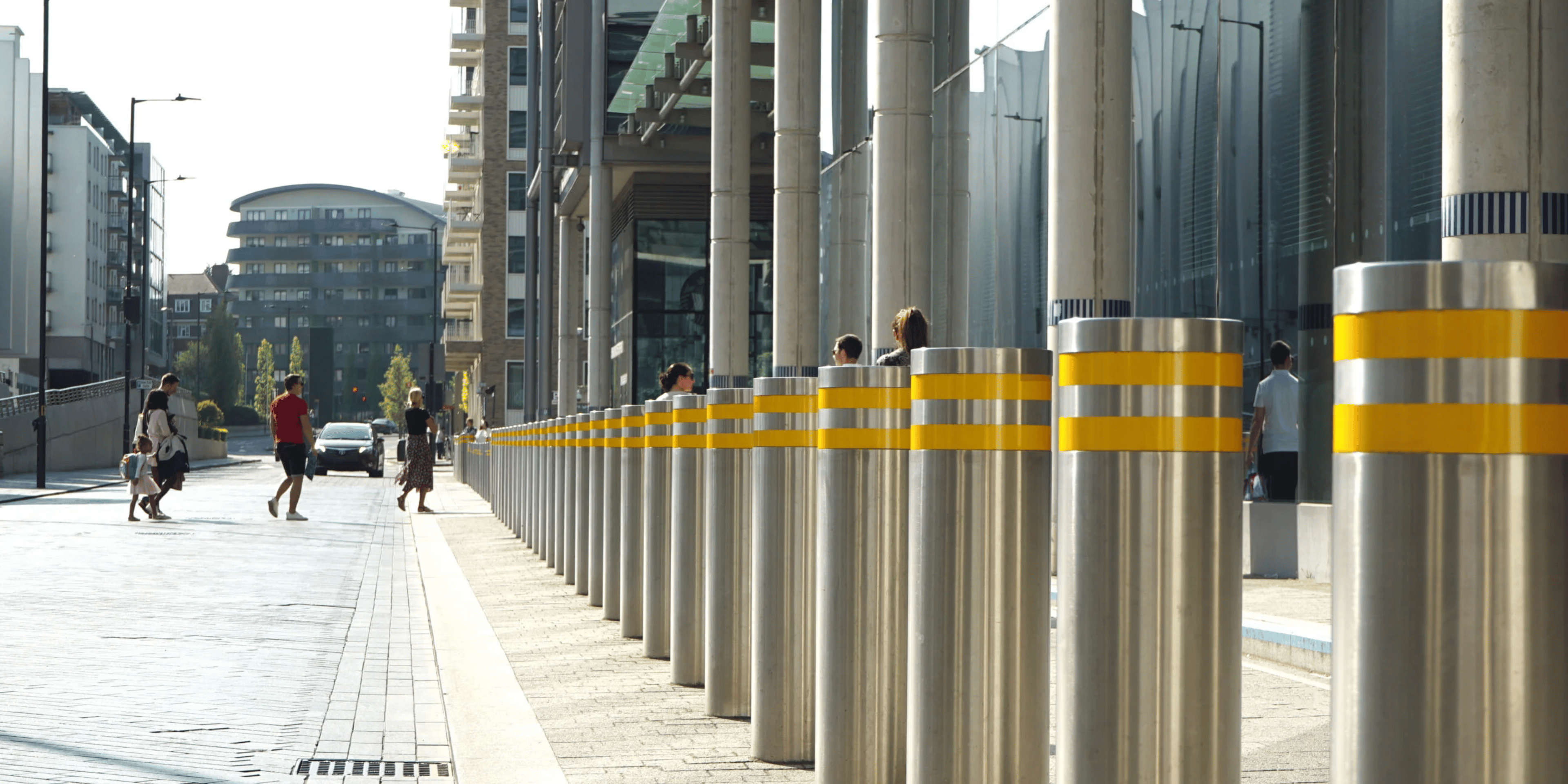
Understanding Facilities Management Companies in Construction Security

Overview
Facilities management companies are integral to construction security, implementing comprehensive protective measures that ensure the safety of personnel and assets on construction sites. This reality underscores a critical yet often underestimated business function. The implications of neglecting security are significant; financial losses, operational disruptions, and reputational damage can arise from inadequate protection.
Priority First addresses these challenges with a focused approach, coordinating services such as risk assessments, access control, and advanced surveillance technologies. By mitigating security risks, they enhance operational efficiency and ensure compliance with safety regulations. The lesson is clear: early investment in security measures is essential to prevent greater losses down the line.
In practise, Priority First has secured over £1.6 billion in assets, demonstrating their capability and commitment to protecting construction sites. Their rapid response times further solidify their role as a trusted partner in fostering business resilience. Security is not merely an expense; it is an investment in business continuity that pays dividends in safeguarding both assets and reputation.
Introduction
Facilities management companies play a crucial role in ensuring the safety and efficiency of construction sites. However, their contributions often remain unnoticed until a security breach occurs. This oversight is significant, as these specialised firms not only implement protective measures but also integrate advanced technology to create a secure environment. As a result, they are essential partners in the construction process. Yet, with the increasing complexity of construction projects, the pressing question arises: how can facilities management companies adapt their strategies to meet evolving security challenges while maintaining operational efficiency? This exploration delves into the critical functions, historical evolution, and technological advancements that define facilities management in construction security today.
The reality is that security is not merely an expense; it is integral to business continuity. Ignoring the risks associated with construction site security can lead to substantial financial losses, operational disruptions, and damage to reputation. For instance, construction theft costs UK businesses over £1 million a week, underscoring the need for robust protective strategies.
In practise, facilities management companies must evolve their approaches to address these challenges effectively. They must leverage technological advancements and adopt proactive measures to safeguard assets and ensure smooth operations. Priority First stands out as a pragmatic solution, offering a comprehensive range of services that enhance security without resorting to hype. Their track record of securing over £1.6 billion in assets and delivering rapid response times illustrates their commitment to protecting clients' interests.
Ultimately, early investment in security measures is crucial to prevent greater losses later. By prioritising security, construction firms not only protect their assets but also enhance their overall business resilience. The lesson is clear: investing in facilities management is not just a cost; it is a strategic move towards sustainable success in the construction industry.
Define Facilities Management Companies and Their Role in Construction Security
Facilities management companies are essential entities that provide a variety of services to ensure the functionality, safety, and efficiency of buildings and infrastructure. In the context of building security, these firms are responsible for implementing protective measures that safeguard both personnel and assets on construction sites. Their role encompasses everything from tailored risk assessments and planning to the execution of comprehensive access control systems, ensuring compliance with safety regulations while minimising disruptions to ongoing work.
The reality is that by coordinating various services such as surveillance, access control, and emergency response, facilities management companies play a crucial role in fostering a safe environment during the construction process. This includes efficient to regulate the flow of personnel and vehicles, ensuring that only authorised individuals have access to sensitive areas. Ignoring these proactive measures can lead to increased risks of theft and unauthorised access, ultimately compromising operational efficiency and security.
In practise, such measures not only mitigate the risk of security breaches but also enhance operational efficiency, allowing building sites to function smoothly. The lesson is clear: investing in robust security infrastructure is not merely an expense; it is a critical component of business continuity. By prioritising security, businesses can prevent greater losses and ensure a resilient operational framework.

Trace the Evolution of Facilities Management in the Construction Sector
The development of facilities oversight in the building industry has notably progressed since the mid-20th century, initially focusing on maintenance and basic operational duties. As building projects have become increasingly complex, the necessity for a more integrated approach has become evident. By the 1980s, facilities oversight expanded to include a wider array of services, such as protection, health and safety compliance, and environmental stewardship. Today, it is recognised as a strategic role that while also boosting the overall efficiency and sustainability of building projects. This evolution reflects the sector's response to rising regulatory demands and the need for comprehensive risk management strategies.
At Priority First, we understand that effective oversight by facilities management companies transcends traditional maintenance. Our approach integrates:
- Hostile Vehicle Mitigation (HVM)
- Personnel guarding
- CCTV
- Logistics coordination
- Facilities oversight
to deliver tailored protection solutions that address the unique challenges of multi-use complex developments and building sites. For example, during the construction of a multi-use complex in Chelsea, we implemented key holding, CCTV monitoring, and logistics coordination to ensure the site remained secure and organised amidst heavy foot traffic and numerous deliveries. This comprehensive strategy not only enhances safety but also supports operational efficiency, illustrating how facilities management companies must adapt to the complexities of contemporary building environments.

Identify Key Services and Characteristics of Facilities Management Companies
Facilities management companies deliver a spectrum of services tailored to the specific needs of construction sites. Key services include:
- Security Personnel: Trained security staff monitor sites and respond to incidents effectively.
- CCTV Monitoring: Priority First provides advanced 24/7 surveillance systems that enable real-time observation and prompt threat identification, acting as both a deterrent and a proactive protective measure.
- Access Control: Comprehensive systems manage entry points and restrict unauthorised access, ensuring that only authorised personnel can enter sensitive areas.
- Emergency Response Planning: Established protocols guarantee swift action in case of incidents, thereby enhancing overall site safety.
- Health and Safety Compliance: All operations adhere to safety regulations, fostering a culture of safety and efficiency.
These attributes not only enhance safety but also cultivate a culture of protection and efficiency at construction sites, ultimately and ensuring project timelines are met. By integrating high-volume monitoring, manned guarding, and CCTV, Priority First, one of the leading facilities management companies, offers tailored protection solutions that enhance site safety and operational efficiency.

Examine the Role of Technology in Enhancing Construction Security
Technology is reshaping construction safety through innovative solutions that enhance protection and operational efficiency. Key advancements include:
- AI-Powered Surveillance: Intelligent CCTV systems equipped with automated threat detection capabilities significantly improve monitoring. These systems analyse video feeds in real-time, identifying unauthorised access and safety hazards, leading to quicker incident responses.
- Predictive Analytics: Advanced tools utilise data to foresee potential threats and vulnerabilities. By learning from historical data, these systems flag unusual patterns, enabling proactive measures to mitigate risks before they escalate.
- Mobile Protection Applications: These applications facilitate real-time communication and incident reporting among personnel, ensuring that any suspicious activity is promptly addressed. This connectivity enhances coordination and on-site.
- Drones: Aerial surveillance devices provide extensive oversight of large construction areas, enabling the detection of potential threats from above. Their ability to cover vast regions swiftly makes them essential for maintaining safety.
These technologies not only enhance the efficacy of protective measures but also enable facility operators to respond swiftly to incidents, thereby reducing risks and promoting a safer workplace. By integrating these advanced technologies, Priority First enhances its services provided by facilities management companies, ensuring compliance with safety protocols, reducing theft, and improving overall site behaviour. Case studies illustrate significant reductions in security alerts and improved operational performance, highlighting the tangible benefits of these integrated security solutions.

Conclusion
Facilities management companies are essential in the construction sector, particularly for their role in enhancing security and operational efficiency. By implementing comprehensive protective measures, these firms ensure that construction sites remain safe while minimising disruptions. Their multifaceted approach, which includes tailored risk assessments, access control systems, and emergency response planning, underscores the critical nature of their services in safeguarding personnel and assets.
The evolution of facilities management has transitioned from basic maintenance to a strategic role that encompasses various security-related services. Key offerings such as trained security personnel, advanced CCTV monitoring, and health and safety compliance are vital in fostering a culture of safety and efficiency. Moreover, the integration of technology, including AI-powered surveillance and predictive analytics, has transformed security management on construction sites, enabling proactive measures that significantly mitigate risks.
The reality is that the significance of facilities management in construction security cannot be overstated. As construction projects increase in complexity, investing in robust security infrastructure is not merely a necessity but a strategic imperative that protects investments and ensures smooth project execution. Embracing these advanced solutions and services leads to a safer and more efficient construction environment, highlighting the vital role that facilities management companies play in today’s industry landscape.
Frequently Asked Questions
What are facilities management companies?
Facilities management companies are entities that provide various services to ensure the functionality, safety, and efficiency of buildings and infrastructure.
What is the role of facilities management companies in construction security?
They implement protective measures to safeguard personnel and assets on construction sites, including risk assessments, planning, and access control systems.
How do facilities management companies enhance construction site security?
They coordinate services such as surveillance, access control, and emergency response, which help create a safe environment and regulate the flow of personnel and vehicles.
Why is it important to have access control systems on construction sites?
Access control systems ensure that only authorised individuals have access to sensitive areas, reducing the risks of theft and unauthorised access.
What are the consequences of neglecting security measures on construction sites?
Ignoring proactive security measures can lead to increased risks of theft and unauthorised access, compromising operational efficiency and security.
How do security measures impact operational efficiency on construction sites?
Effective security measures mitigate the risk of breaches, allowing building sites to function smoothly and enhancing overall operational efficiency.
Why should businesses invest in security infrastructure?
Investing in robust security infrastructure is critical for business continuity as it helps prevent greater losses and ensures a resilient operational framework.




